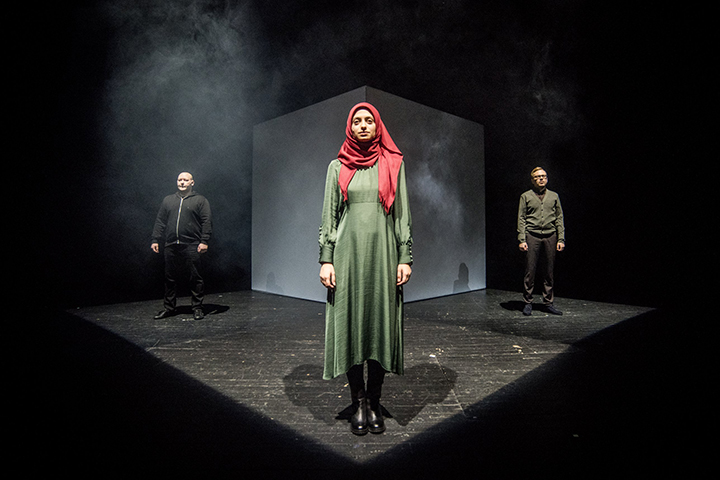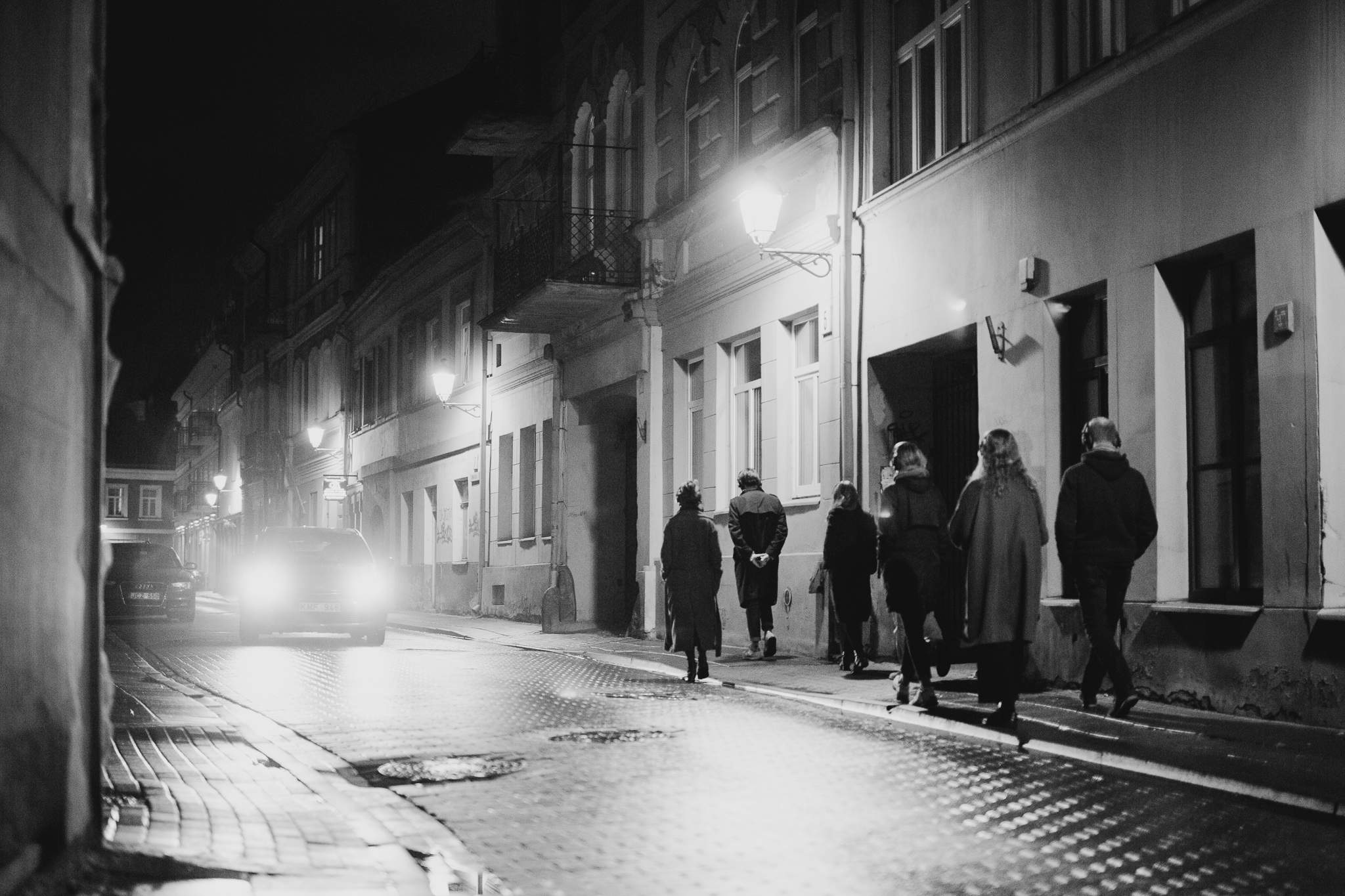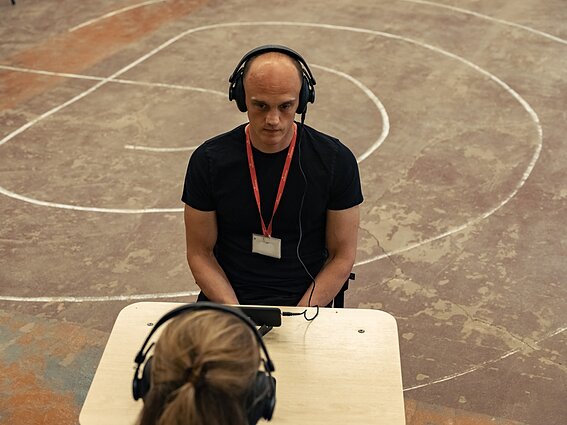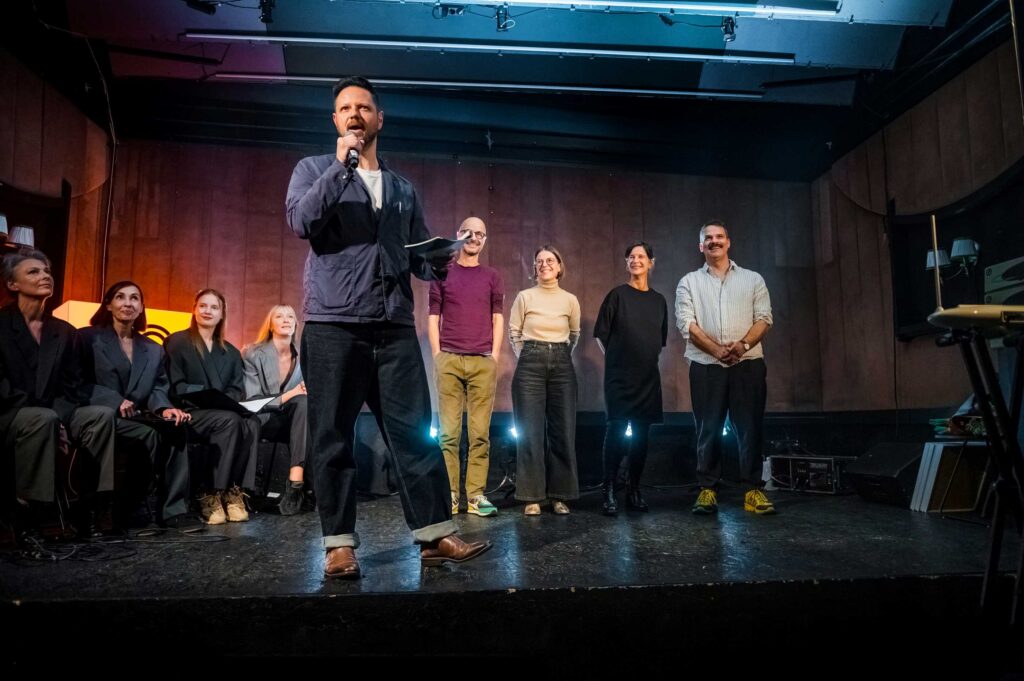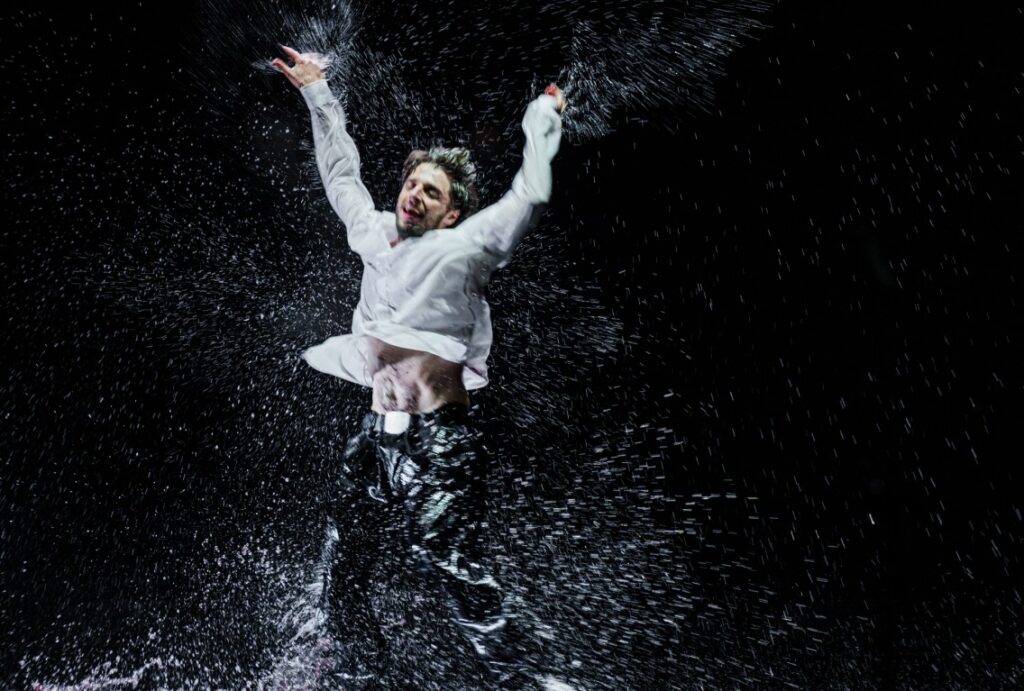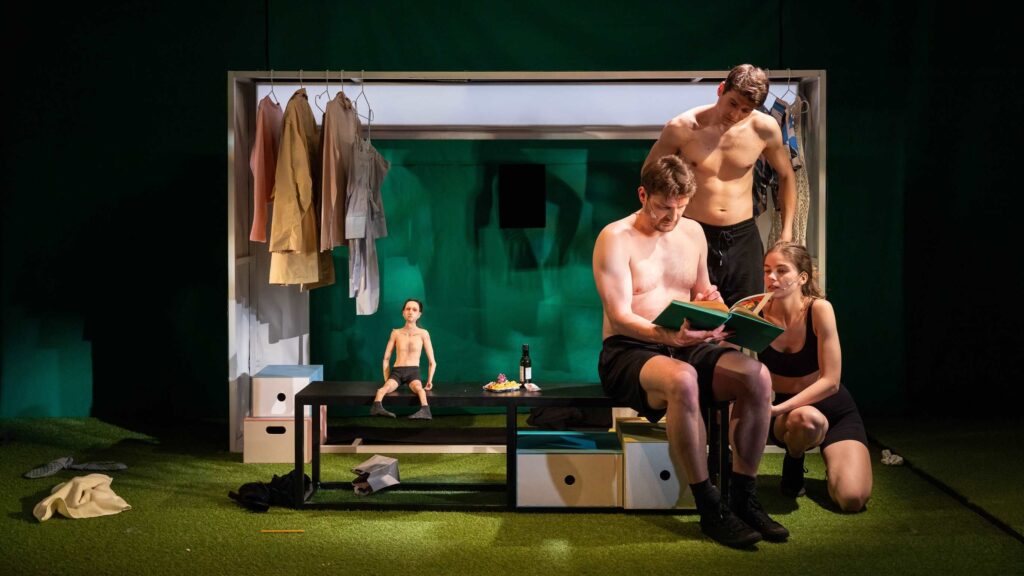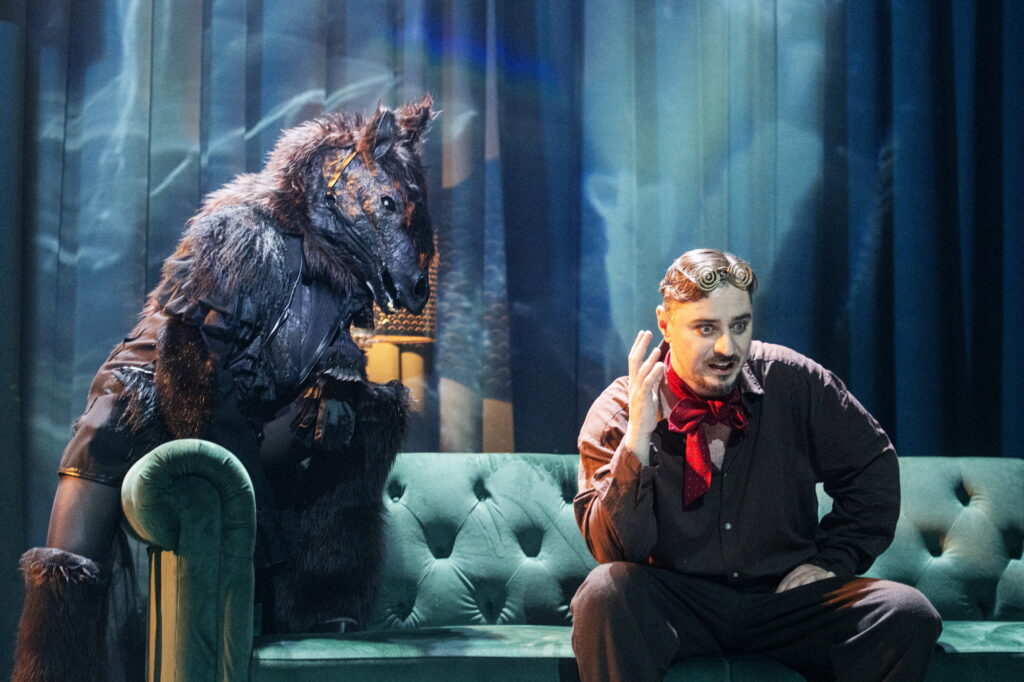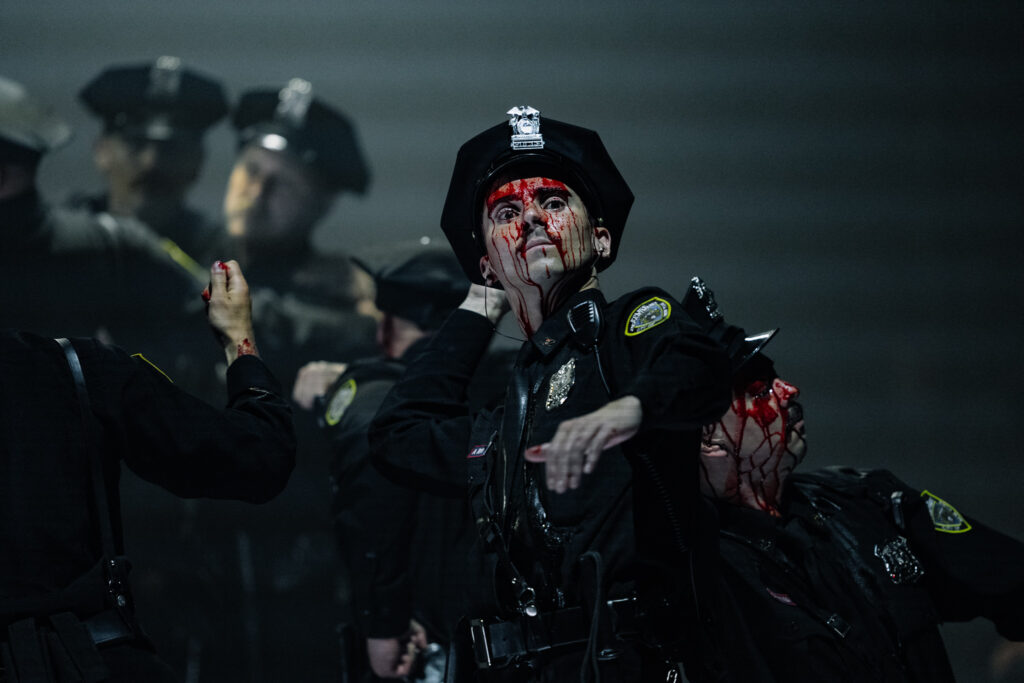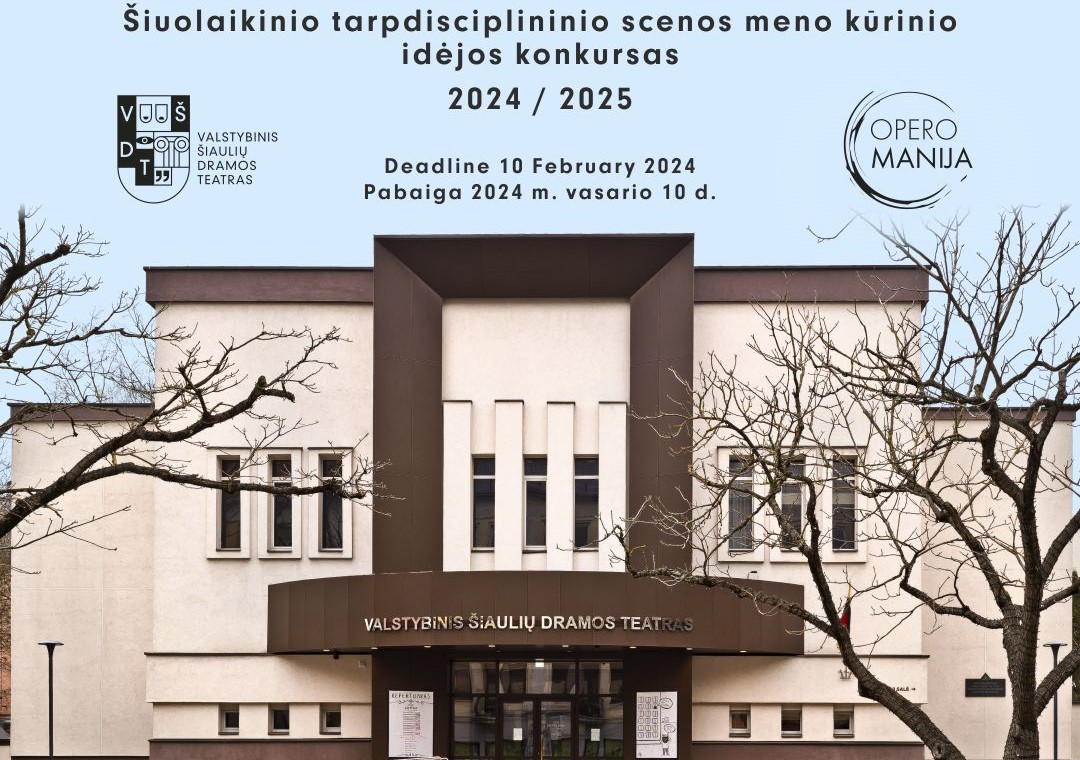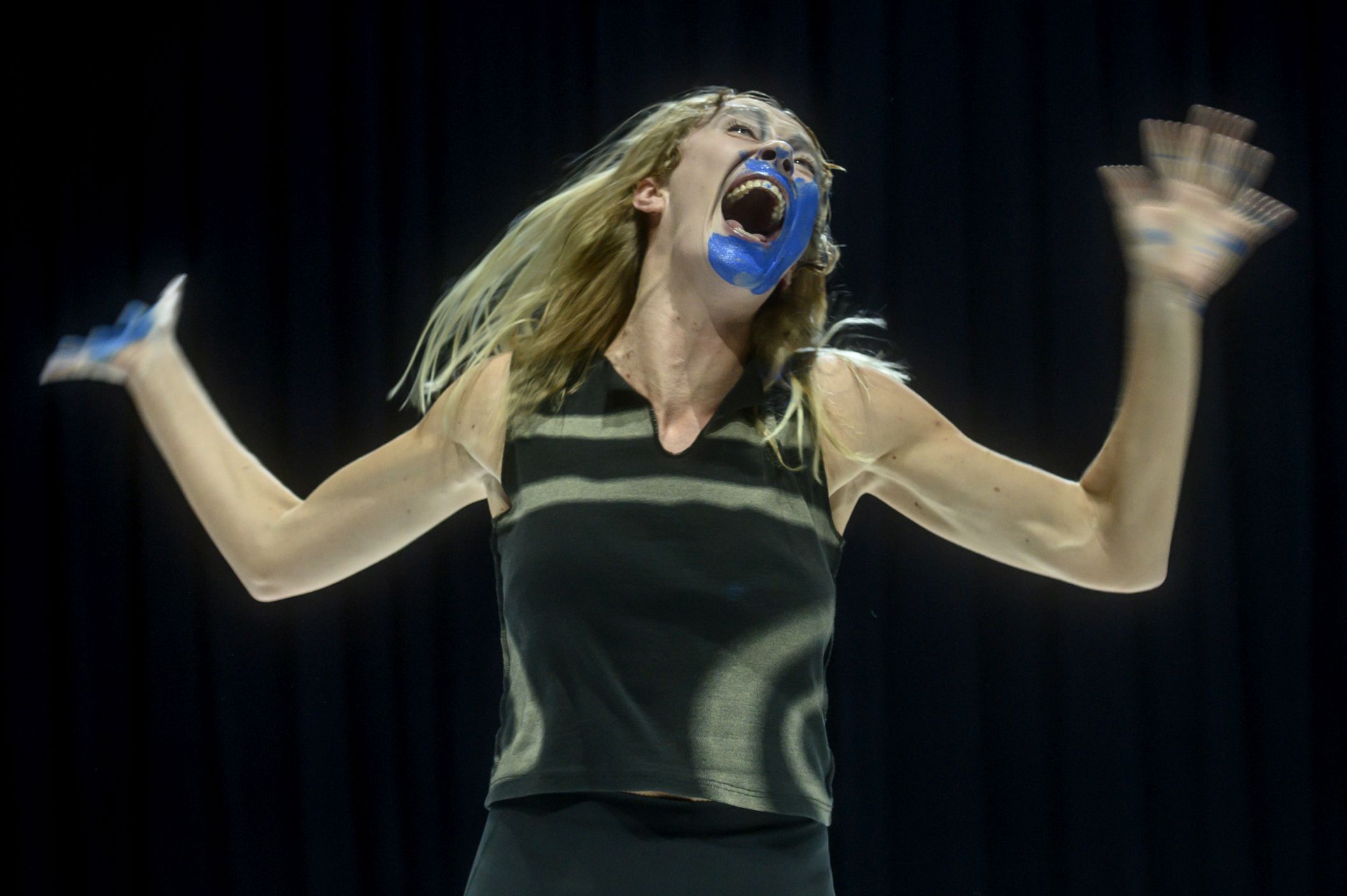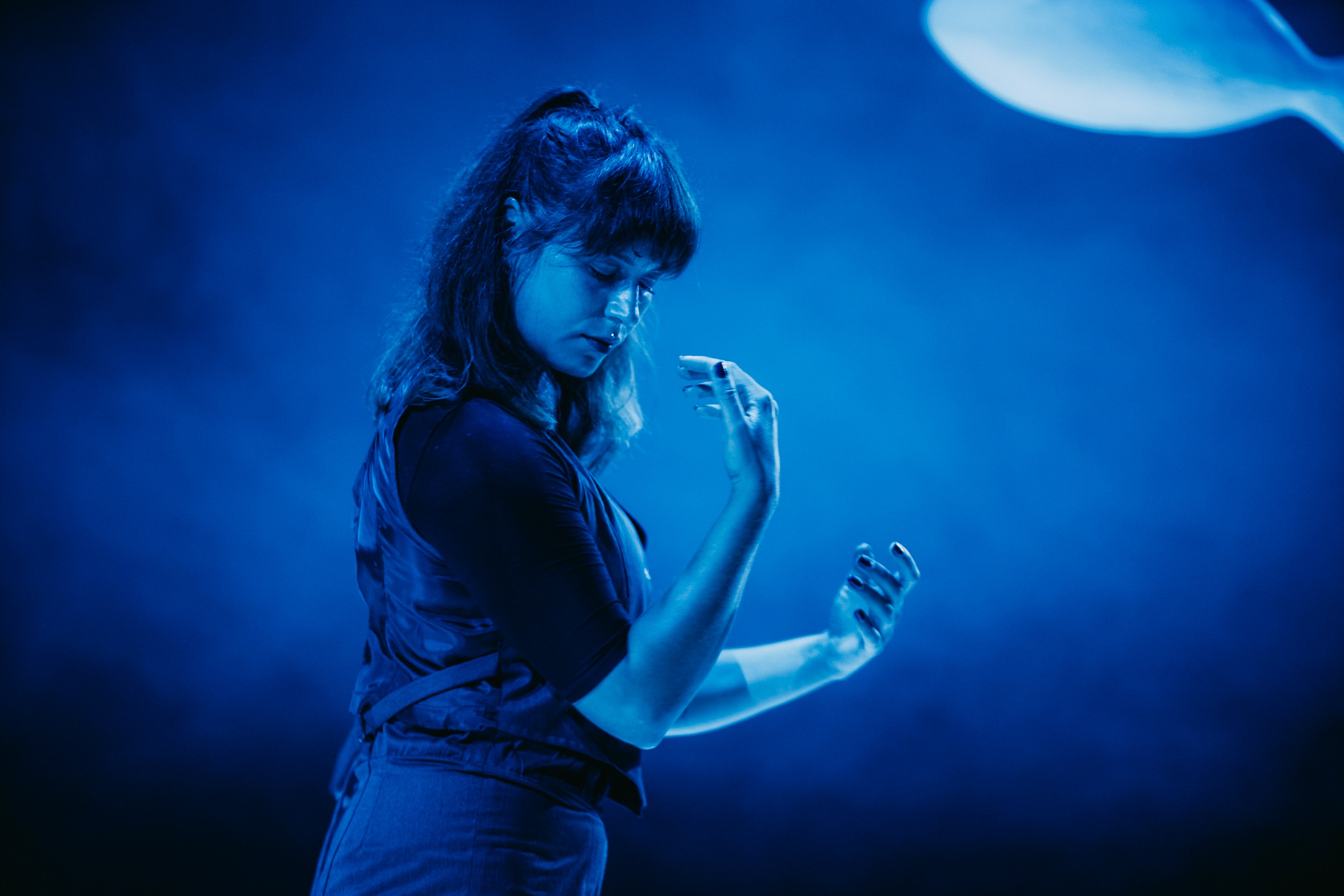For many years, in addition to its international programme, the International Theatre Festival “Sirenos” has been organising a Lithuanian showcase and inviting foreign professionals to watch it. In 2022, the organisers started a new practice: a jury of foreign professionals is formed and is asked to award three shows. All the choices in 2023 were based on real events, or were real events themselves. Besides two traditionally staged shows, an award was given to Guided, a meeting of 'audience' and prisoners in the Socialisation Centre at Pravieniškės in Lithuania around 80 kilometres from Vilnius. During the ceremony, the jury stated that it was difficult to understand whether this event was supposed to be called a piece of theatre. In reply, the authors said it was a relief to win the award because they too were not sure whether they should call the work a piece of theatre.
The creative team of Guided consisted of several people fronted by two artists, the theatre director Mantas Jančiauskas and the dramaturg Rimantas Ribačiauskas. This duo are experienced in socially engaged art and in showing their style of work step by step. As a duo, they have never worked with professional actors. This might be the reason why their most successful pieces consist of strong forms and technologies (they are used to keeping to one track, basically dramaturgy set on mobile devices).
The first public collaboration between Jančiauskas and Ribačiauskas happened in 2017 on the show Dreamland, which was staged at Lithuanian National Drama Theatre. The play told the stories of five emigrés who had fled their country and were living at the time in Lithuania. They included two Russians who did not feel free in their country because of the ideas they expressed, a Turkish woman of whom a family member had had to leave due to his opposition principles, a love emigré from Lebanon, and an Afghan who was threatened in his home country. The show was not very successful artistically. Moreover, it seems it was not easy for the artists to convince the participants to talk openly about their deepest feelings and the reasons behind their decision to become refugees. Therefore, Dreamland seemed to be an exposé of personalities and hopes, rather than a rich creative work on the difficulties of how the world functions.
However, Dreamland possibly turned out to save a life. The Afghan emigré did not have the right to stay in Lithuania, and so the creative team, together with the NGO “Artscape”, organised protests, and convinced the authorities that he was necessary for the production. He was finally allowed to stay in Lithuania a little longer.
Furthermore, Dreamland seems to have set a precedent for the next shows and other projects by Jančiauskas and Ribačiauskas. At the end of 2019, as part of the work of “Operomanija”, they presented the sonic experience The Filler, based on the stories of four Holocaust survivors who left Vilnius after the Second World War. In this piece, 'audience members' gather at the Jewish Culture and Information Centre, where they get mobile phones and headphones. Two people from the creative team lead them on an audio walk around the area of the former Vilnius ghetto. Nobody is allowed to speak, the participants just walk, listen, read and research, or discover spaces where Jews used to live before the Germans and Lithuanians destroyed their heritage in the area. The show was awarded a “Golden Cross of the Stage” for the best dramaturgy of the year.
The Filler has since been performed during the autumn and spring seasons. Meanwhile, the duo started working on their latest piece, Guided (as part of the production of “Artscape”), one of the pieces awarded by the international jury in the “Sirenos” festival in 2023. The event takes place in premises for prison inmates who are being treated for addictions; the participants are selected from those who have already gone quite far down this path. Ten members of the audience enter an indoor basketball court and sit at tables placed in a circle several metres apart. After a few minutes, the prisoners come and sit in front of each audience member. Everybody starts following the instructions on the mobile phones they see in front of them. During an hour-long meeting, similar to speed-dating, the prisoners keep moving around, therefore meeting every 'spectator'.
Compared to Dreamland, it is rather difficult to evaluate The Filler and Guided. These pieces are supposed to give the participants (this is the correct way to describe the members of the audience in such pieces) specific information and inspire them to interpret the experience as personally as possible. Furthermore, such art obviously makes real changes, while at the same time creating a space for new connections between people, or between people and their environment, or a story that has influenced the present period. Furthermore, Jančiauskas and Ribačiauskas courageously follow a path which shows that an affective theatre happens not only on a stage with all the traditional props. Sometimes you do not even need actors for a collective experience. You only have to find out how to inspire an audience to use their imagination, and how to open a space for engagement in the process with all the audience's hearts and minds.
Finally, although Jančiauskas and Ribačiauskas each have their own projects, and all in all they have not yet created many shows together, as a duo they have already shown themselves to be an exceptional phemonenon, and not only in Lithuania: in 2022 they put on a project in the “Life Infected with Social Theater” festival in Naples in Italy, where they worked with women from the Scampia district, which was formerly known as one of the most dangerous places in Europe. The duo (together and separately) are actively and successfully developing their skills, and working with different communities, and not only manage to produce functional and clever creative work, but also to gather a great team of different professionals, which is always necessary when working in sensitive fields. As a result, their work causes others to face their fellow human beings, and helps us to develop a culture of discussing and listening to those around us with respect.
-----
Publikaciją finansuoja Lietuvos kultūros taryba

